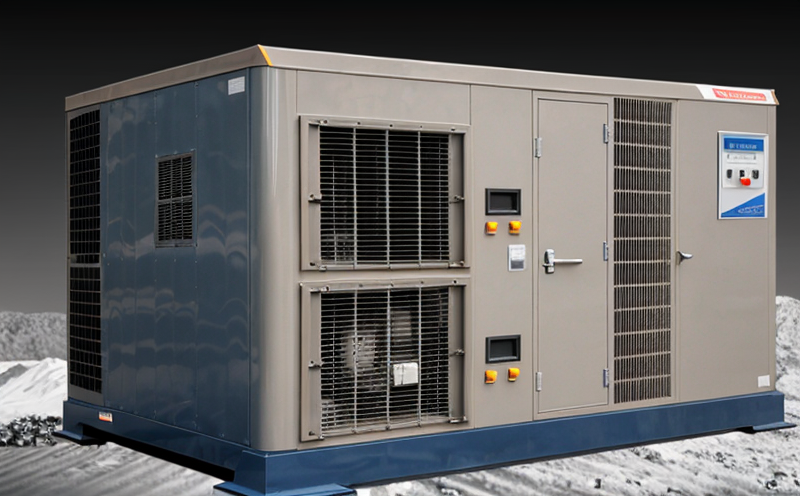JEDEC JESD22-A129 System-Level Thermal Stress Testing
The JEDEC JESD22-A129 standard addresses system-level thermal stress testing of semiconductors and microchips. This critical service ensures the durability, reliability, and performance stability of electronic components under extreme temperature conditions. The test simulates real-world operating environments to identify potential weaknesses before they become operational issues.
Thermal stress is a significant factor in the lifespan and reliability of semiconductor devices. Excessive heat can lead to degradation of materials, increased resistance, and reduced conductivity, all of which contribute to device failure over time. JEDEC JESD22-A129 provides a standardized method for subjecting components to controlled thermal cycles that mimic operational conditions found in various environments.
The testing process involves placing the microchips or systems into an environmental chamber where temperature fluctuations are precisely controlled according to predefined protocols. The chamber simulates both high and low temperatures, often ranging from -40°C to 150°C. The specimen is subjected to these extreme conditions for extended periods to assess its stability.
During the test, the system undergoes thermal cycling, which involves rapid changes in temperature. This process helps identify any latent defects that may not be apparent under normal operating conditions. By subjecting devices to such stressors, engineers can ensure that components perform consistently across a wide range of environments, from hot climates to cold storage facilities.
Compliance with JEDEC JESD22-A129 is essential for manufacturers aiming to meet stringent quality and reliability standards. The test results provide critical data for product design improvements and help in identifying potential areas requiring further research or development. This standardized method ensures that all tested devices undergo the same rigorous process, allowing for comparability across different products.
The testing apparatus used includes sophisticated environmental chambers capable of maintaining precise temperature control and cycling rates. These chambers are equipped with monitoring systems to ensure accurate data collection throughout the test duration. The entire process is designed to mimic real-world conditions as closely as possible, providing valuable insights into how components will perform under actual use.
Engineers rely on JEDEC JESD22-A129 testing to validate that their products meet or exceed industry standards for reliability and performance. This service plays a crucial role in ensuring the integrity of electronic systems by identifying any potential issues early in the development cycle, thus minimizing costly rework later on.
In summary, JEDEC JESD22-A129 system-level thermal stress testing is vital for maintaining high standards of quality and reliability in semiconductor manufacturing. By subjecting components to controlled temperature cycles, this service helps manufacturers produce products that are robust enough to withstand various environmental conditions while delivering consistent performance.
Benefits
- Identifies latent defects early in the development process.
- Promotes consistent performance across various environments.
- Facilitates compliance with industry standards for quality and reliability.
- Paves the way for continuous product improvement.
- Reduces the risk of field failures due to thermal stress.
Quality and Reliability Assurance
The success of any electronic system depends heavily on its quality and reliability. JEDEC JESD22-A129 plays a crucial role in ensuring that semiconductor devices meet or exceed these critical standards. By subjecting components to controlled thermal cycles, this service helps manufacturers produce products that are robust enough to withstand various environmental conditions while delivering consistent performance.
Compliance with industry standards is essential for maintaining high-quality products and gaining customer trust. JEDEC JESD22-A129 ensures that all tested devices undergo the same rigorous process, allowing for comparability across different products. This standardized method also helps in identifying potential areas requiring further research or development.
The test results provide valuable data for product design improvements, helping manufacturers identify any potential issues early in the development cycle. This proactive approach minimizes costly rework later on and ensures that only high-quality components reach the market. Ultimately, JEDEC JESD22-A129 contributes to building a reputation for reliability and trustworthiness among customers.
Customer Impact and Satisfaction
The implementation of JEDEC JESD22-A129 system-level thermal stress testing has a direct positive impact on customer satisfaction. By ensuring that semiconductor devices meet stringent quality and reliability standards, this service helps manufacturers produce products that are robust enough to withstand various environmental conditions.
Customers can expect consistent performance across different environments, reducing the risk of field failures due to thermal stress. This reliability fosters trust between manufacturers and end-users, leading to higher customer satisfaction levels. Additionally, the ability to identify potential issues early in the development process means that products are more likely to perform as expected when they reach the market.
In summary, JEDEC JESD22-A129 contributes significantly to improving overall product quality and reliability, which ultimately leads to increased customer satisfaction and loyalty. Manufacturers who adopt this service can expect enhanced reputation and greater trust from their customers.
Frequently Asked Questions
- Identifies latent defects that may not be apparent under normal conditions.
- Ensures consistent performance across different environments.
- Facilitates compliance with industry standards for quality and reliability.
- Promotes continuous improvement in product design.
- Reduces the risk of field failures due to thermal stress.





